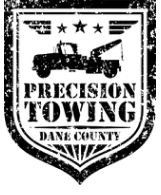When you need to move a vehicle weighing over 10,000 pounds, specialized heavy-duty towing services are essential. With the right equipment and experienced operators, transporting oversized RVs, construction machinery, and commercial trucks to their destination can be smooth and stress-free. Follow these tips for selecting a qualified heavy-duty towing provider.
Verify CDL Certified Operators
Entrusting your valuable cargo to inadequately trained drivers can lead to accidents and equipment damage. Top-tier towing companies employ CDL-certified operators with proven experience in handling similar loads. Inquire about their operator vetting processes, onboarding procedures, and overall capabilities to ensure the entire team meets the high standards required for your vehicle’s needs.
Evaluate Equipment and Capacity
A standard flatbed wrecker won’t suffice for maneuvering a 70-ton crane down winding roads. Ensure that potential towing companies have equipment suited to your payload with ample capacity. This includes the proper class of wreckers, durable trailer beds, integrated axle lifts, extendable clamps, and any other accessories essential for secure transport. Verify that the equipment’s ratings exceed your gross combined vehicle weight by at least 20%.
Assess Safety Record and Compliance
While no one anticipates incidents, minimizing risks is crucial when selecting a carrier. Choose a company with near-perfect safety statistics by requesting federal compliance reports, training programs, inspection scorecards, and internal accident rates. Adherence to Better Business Bureau and Federal Motor Carrier Safety Administration guidelines reflects a commitment to best practices. Prioritize companies that excel in accountability metrics.
Understand Permitting Needs
Oversized and overweight vehicles require special transit permissions in most jurisdictions. Experienced heavy haul towing professionals are familiar with the permitting procedures for each region along your route and will schedule adequate lead time to secure approvals before departure. Novices who are still learning may face significant delays or restricted access due to overlooked regulatory requirements.
Clarify Insurance Protections
Despite the best efforts, unforeseen issues can occasionally arise during transit. Ensure your cargo and liability risks are covered by confirming that the broker’s insurance policies exceed your equipment’s value for both transportation and storage. Request written documentation of coverage terms, including details on exclusions, restrictions, payout limits, and any required security protocols for cargo under their custody.
Specialty equipment requires specialty carriers. Adhering to these selection principles will pair your oversized vehicle with qualified heavy-duty towing experts who prioritize safety, compliance, and value protection at every mile. Contact trusted heavy-duty towing specialists in Monona, WI, ahead of time for any additional questions—taking a proactive approach is key!
